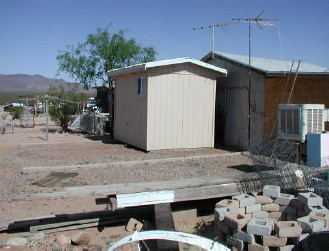For thousands of families and communities along the US/Mexico border, USDA Rural Development (RD) has provided help…and hope.
Over the past four years we have invested more than $1.2 billion dollars in Colonias in Arizona, California, New Mexico, and Texas—financing a range of projects from clinics and hospitals to water and waste water systems, from state-of-the-art energy-saving photovoltaic solar energy systems to child care centers, from local rural businesses to food banks.
Colonias are neighborhoods or communities within 150 miles of the U.S./Mexico border that are economically distressed. For many the basic infrastructure that most Americans take for granted is non-existent. Such was the case on the Tohono O’odham Nation in southern Arizona. Most of the homesites on this sprawling reservation are miles from the nearest water/waste water infrastructure. Homes were built years ago without indoor plumbing…and the hope of adding sanitary facilities was stymied by the lack of access to treatment facilities.

A partnership between USDA RD and the Indian Health Services made possible the construction of stand-alone modular bathrooms—with a toilet, shower, water heater, and indoor/outdoor lighting. The units are next to the individual homes in the Tohono O’odham communities and have dramatically increased the quality of life for tribal members.
In Penitas, Texas, USDA RD funded a wastewater treatment plant that will serve approximately 1,500 families—bringing sanitary water treatment to the community. Because growth and development are often dependent on available infrastructure, the facility was built to not only handle the existing population, but to be able to accommodate anticipate growth. It was heartwarming for me to see the enthusiastic response to the new hope kindled in the community by such a basic facility.

USDA Rural Development believes in supporting Colonias, building partnerships and has made this work a high priority. On June 14, 2012, the USDA Rural Development, U.S. Department of Housing and Urban Development and U.S. Department of Treasury’s Community Development Financial Institution Fund announced a joint Border Capital Community Initiative. The Border Initiative was designed to strengthen public private partnerships and promote economic development for Colonia communities.
To learn more, go to the Border Capital Community Initiative webpage.

